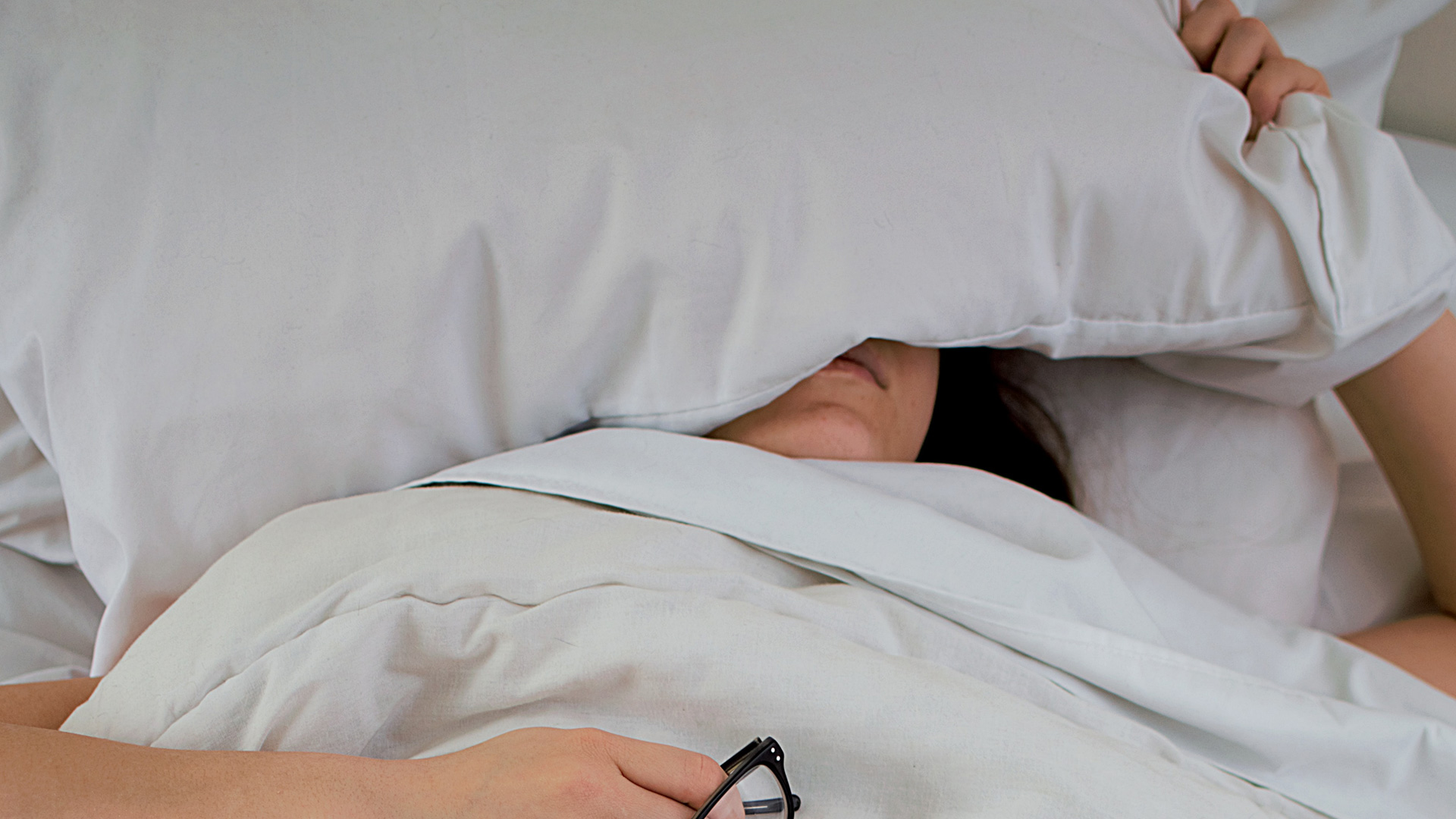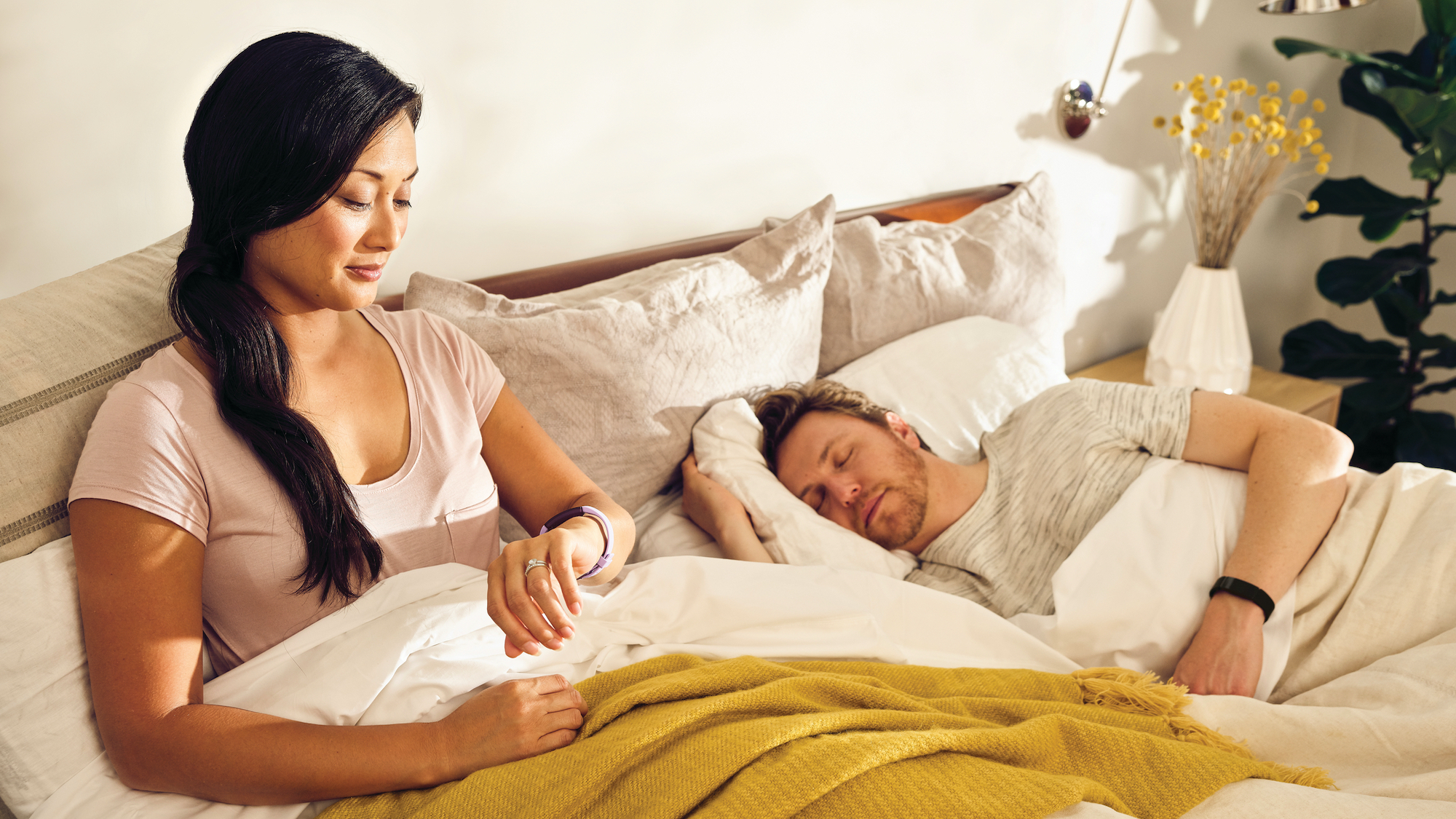Your sleep tracker could be making you sleep worse
'Orthosomnia' is a new sleep disorder that scientists say is brought on by sleep trackers. Is there anything in it?


We're all on the hunt for the perfect night's sleep, and there's a whole range of things we know we should probably avoid before bed if we're going to achieve it. Booze. An hour of doomscrolling on Twitter. Coffee. (Although according to research, that last one isn't actually as bad for us as we originally thought.)
But you probably never suspected that your fitness tracker might be the culprit for your poor sleep, did you? Today's best sleep trackers will keep an eye on exactly when you're snoozing and how deeply, and report back in startling detail every morning. But some experts think this obsession with achieving the perfect sleep 'score' on your tracker might actually be causing you to sleep worse. The phenomenon has a name – Orthosomnia – and there's research to back it up, too.
Should you be unstrapping your sleep tracker and chucking it out of your bedroom window? We asked two sleep experts for their take.
Olivia Arezzolo is a sleep has qualifications in psychology and sleep psychology and is well known for her sleep advice. "While sleep trackers can be helpful, as they increase awareness around sleep quality, and perhaps raise awareness into elements which sabotage and support sleep; they can also be detrimental, as an individual can become over-identified with the numerical values," she explains.
Olivia recommends implementing a healthy sleep routine – she has a signature bedtime routine that might make for a good starting point – rather than using a tracker straight off and trying to firefight issues as they arise. "The primary way to improve sleep is by taking action…. Sleep tracking in itself is not sufficient to improve sleep, therefore it should not be of primary importance."

Olivia says that once you have a good routine in place, then you could start with a sleep tracker. Although by that point, presumably it'll only be useful for patting yourself on the back for being such an amazing sleeper.
We also got in touch with "Sleep Geek" James wilson, founder of Beingwell, to hear his take. “Generally, I find that sleep trackers are as likely to make sleep worse, as they are to improve sleep," he says. There are a couple of reasons he believes this is the case. First, they're designed purely to capture data, rather than coach improvements. "We are often expecting them to be an intervention in our sleep, when in fact they are a measurement tool that gives us an idea – with some being more accurate than others – as to how we are sleeping."
Get all the latest news, reviews, deals and buying guides on gorgeous tech, home and active products from the T3 experts
The second reason is that they create added pressure for those who aren't hitting those ideal scores. "If you are a poor sleeper, a tracker tells you something that you already know from how you feel, namely that you didn’t sleep very well," he continues. "This then leads to the person tracking their sleep feeling like a failure, they focus too hard on trying to sleep better, and end up sleeping worse."
If you are looking for aids to help you improve your sleep, you could start with trying these techniques to fall asleep quickly, or perhaps invest in a pair of the best sleep headphones if you want to mask background noise.

Ruth was T3's Outdoors and Wellness Editor from 2020 to 2022, covering hiking, camping and adventure sports kit, as well as mattresses, sleep accessories, yoga and general wellness. She's now a Homes Editor at sister site TechRadar, where she deals in all things air (vacuum cleaners, robovacs, fans and air purifiers), and hair (hair dryers, straighteners and stylers).